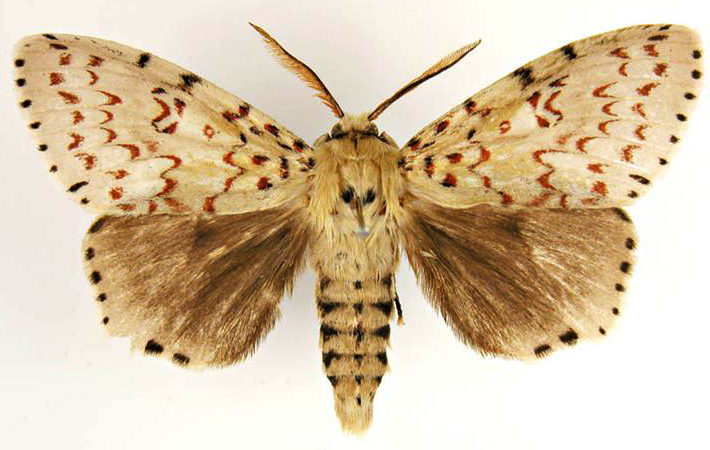WSU leads project to protect tribal resources, wildlife
University works with tribes, USDA to stave off invasive species
The U.S. Department of Agriculture classifies the Asian gypsy moth an invasive species because it poses a threat to the economy, the environment and human health.
March 23, 2018
Washington Native American tribes are working with the U.S. Department of Agriculture to fight off invasive plant and insect species that impact ecosystems on native land.
Dan Fagerlie, WSU’s extension tribal liaison, directed the Reaching American Indian project, or RAIN4, which assisted in the identification of harmful species and provided native tribes with outreach tools to deal with the problems.
Invasive species pose a threat to the economy, the environment and human health, according to the Natural Resources Conservation Service.
Although the project ended in July of 2017, Fagerlie has helped Washington tribes to protect tribal resources and plans to continue his work in this field of research.
He said workshops, awareness events, educational tours and symposiums are important tools in helping to educate people on early identification of invasive species and what to do about them.
The USDA advises people report new potential invaders so it can consider adding them to the list of documented invasive species. The USDA responds to reports of already identified dangerous species by working to contain them.
The Asian gypsy moth is one of the main focuses of this project, because infestations are causing the complete defoliation of native tree species. According to USDA research, the repeated defoliation of trees over a span of two years can cause the death of large sections of forest.
Fagerlie said results from the RAIN4 project have led to an increase in the usage of biological control agents — natural enemies of the invader — in managing the numbers of Asian gypsy moths.
He has called for maintaining a strong relationship with tribal members to continue collaboration in preserving natural resources and preventing the spread of invasive species to other natural ecosystems.
Will Wepsala, public affairs specialist for the USDA, said funds from the 2014 Farm Bill Section 10007 are going toward the early identification and elimination of invasive plants and animals, like the Asian gypsy moth and knotweed.
The RAIN4 project aims to protect native plants and animals that are traditionally harvested for consumption, Wepsala said.
Fliers and signs posted about invasive species have led to discoveries of populations of dangerous species, Wepsala said, and helped prevent them from spreading on Washington native lands.





















